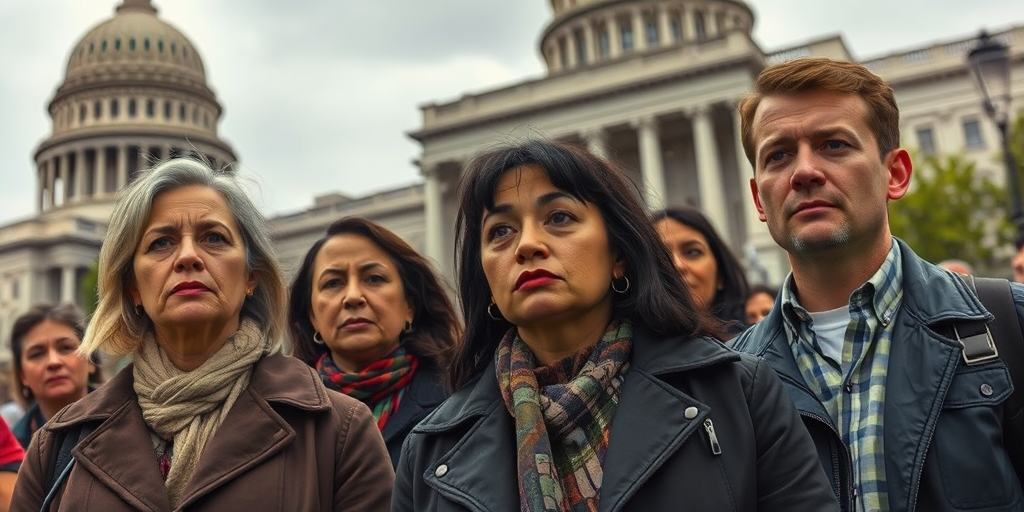Center for Biological Diversity Lawsuit Highlights Call for Transparency in U.S. Dietary Guidelines
Amid growing concerns over industry influence on public health, the Center for Biological Diversity has filed a lawsuit seeking the release of Robert F. Kennedy Jr.’s calendar and communications related to the upcoming U.S. dietary guidelines. This development, coupled with a contentious report from the Make America Healthy Again (MAHA) Commission, underscores a pressing need for transparency about potential industry sway over national nutritional policies.
Lawsuit Overview and Background
Filed in the D.C. District Court, the lawsuit targets the U.S. Department of Health and Human Services for not disclosing Kennedy’s schedule and exchanges concerning the United States Department of Agriculture’s dietary guidelines set for release between 2025 and 2030. The suit is an extension of a Freedom of Information Act request submitted earlier in March, a provision that mandates federal openness within 20 business days.
The controversy is fueled by the recent MAHA Commission report that reportedly praises beef, dairy, and lard—a recommendation criticized for neglecting their documented health risks such as heart disease and cancer. According to Stephanie Feldstein, population and sustainability director at the Center for Biological Diversity, the guidelines considerably impact national dietary health and government allocations exceeding $40 billion.
“This can’t be another instance where purchase power dictates public policy. Dietary choices profoundly shape health outcomes, and Americans deserve policies rooted in science, not commercial bias,” Feldstein noted.
Local Implications for California Communities
On a local scale, the implications of unclear dietary guidelines resonate significantly in places like Mariposa, California, where community establishments like the High-Country Health Food and Cafe exemplify the growing trend towards organic and sustainable living. High-Country Health offers diverse dining that caters to vegetarian, vegan, and other health-focused cravings, within a sustainability-minded ambiance.
Antonio Reyes, a regular patron, highlights the cafe’s pivotal role for health-conscious residents. “Given the national uncertainties with food policies, places like High-Country are a beacon for locals. They let us make informed choices in an often opaque food system,” he expressed.
Furthermore, the lawsuit underscores the broader regional discourse on sustainable agriculture, an essential concern given the Valley’s agricultural influences and the industry’s economic reach.
Links to Previous Local Events
Mariposa has previously engaged in meaningful dialogues regarding agricultural impacts and environmental sustainability, often contrasting industrial agricultural practices with local organic efforts. Community-driven forums have addressed the challenges of aligning the state’s robust agricultural sphere with health-centric food beliefs.
Jose Fernandez, a community organizer, recalls a series of town hall meetings initiated after the state’s preceding dietary assessments. “Our history of advocating for local organic produce provides context for why transparency in guidelines matters locally. Our community demands they reflect our values and nutritional priorities,” he asserted.
Potential Future Outcomes
Going forward, this call for transparency may ignite discussions not only across California but nationwide, potentially setting a remedial precedent for other federal policies perceived as susceptible to corporate interests. If the lawsuit succeeds, its revelations could lead to increased advocacy towards a more independent, nutritive-focused dietary framework that prioritizes health evidence over industry inclinations.
However, ensuring balanced representation in guidelines remains critical amidst potential polarization between industry leaders and nutritionists.
Finding Common Ground for Progress
Moving past rhetoric, stakeholders must find common ground centered on nutritional science. Clear communication and publicly accessible information can mitigate controversy, allowing progress towards community-focused policies.
In response to local demands for reliable nutrition insights, resources such as public workshops and direct consultations at food establishments like High-Country could help equip residents with the knowledge to make informed dietary choices despite the national impasse.
As the story unfolds, it epitomizes the essential quest for integrity in health policies serving the public—highlighted in a microcosm through the lens of Mariposa’s vibrant community interface.
By engaging in this fight for transparency, residents and policy watchers alike become participants in a pivotal discourse that extends beyond dietary recommendations to embody broader values in community resilience and public welfare.







